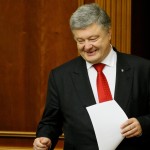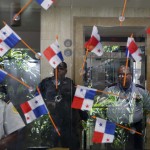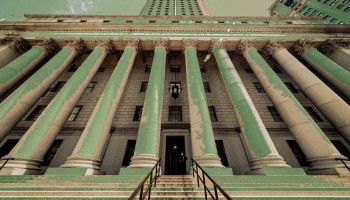A few organizations and governments have made comments about OCCRP reporting, including the claim that OCCRP has singularly controlled the coverage of Russia in Panama Papers. This is not true. The story on Putin was reported primarily by Novaya Gazeta and reporters from a dozen other media including the Guardian, OCCRP and Suddeutsche Zeitung. Each media wrote its own version of the story.
Novaya Gazeta voluntarily works within the OCCRP network, a network of the best investigative reporters in more than 20 countries, but has never received a penny from OCCRP nor would it accept such money if offered. It is an independent and independently minded organization and anyone who works with it understands it cannot be influenced. They published their own story and cooperated on a joint edited English version.
OCCRP was invited to join the global team working on this story by ICIJ and has had no more influence than the more than 100 other media that have contributed. This can be verified by many partners in the project. It is naive to believe OCCRP could adversely influence 100 of the most respected media outlets in the world. The idea that OCCRP is not an independent media outlet simply because it has taken some government money, while appealing to the world view of some, is simply not true.
OCCRP is regularly attacked in countries where it works and has been groundlessly libeled many times. One of its reporters has been imprisoned in Azerbaijan, where family members of a number of OCCRP journalists are facing false charges and imprisonment. OCCRP and partner websites have been the target of regular DDoS attacks, malware has been sent to our email and our staff probed by social engineering. We encourage people not to make groundless accusations against OCCRP, partners and staff that could cause more harm.
OCCRP is partially funded by the US and other governments. We freely list these on our site and have always been transparent about our funding. OCCRP has also been funded by Google Ideas, the Open Society Foundations, the United Nations, a handful of family trusts, individual contributors, and through commercial revenue earned by journalism and by training journalists. In the countries where OCCRP operates, virtually all investigative or independent media organizations have been funded by governments.
The US government may be the single largest funder of journalism in the world. This is true in the Middle East and many parts of the world. Few institutional donors work in the countries where we do, such as Azerbaijan, Tajikistan and Moldova. We accept government money knowing this may affect our credibility with some, but we chose doing some good over not existing at all. It’s a decision we can live with and we hope to use our success to bring in more money and more support to these regions. We note that this approach has been working and our share of US government money has been dropping.
This is the same money, by the way, that has built various digital civil initiatives like TOR, Global Leaks and many other projects. Well-known and respected contributors to many digital initiatives have been supported by these same donors. Government money also funds some of the biggest media operations including the BBC, Swedish Television and others.
In the end, we believe our journalism speaks for itself - journalism that our peers have recognized with a European Press Prize, three Global Shining Light awards and just about every award we can win. There has been no disputing the facts of the stories. No one has denied anything we have published. It is unfortunate when journalists must spend time defending themselves against attacks by those who would shoot the messenger for the message. This naturally draws attention away from the real story.
We will have nothing more to say on this matter. We don’t think it’s a good use of our energy when there are so many more stories to do.







